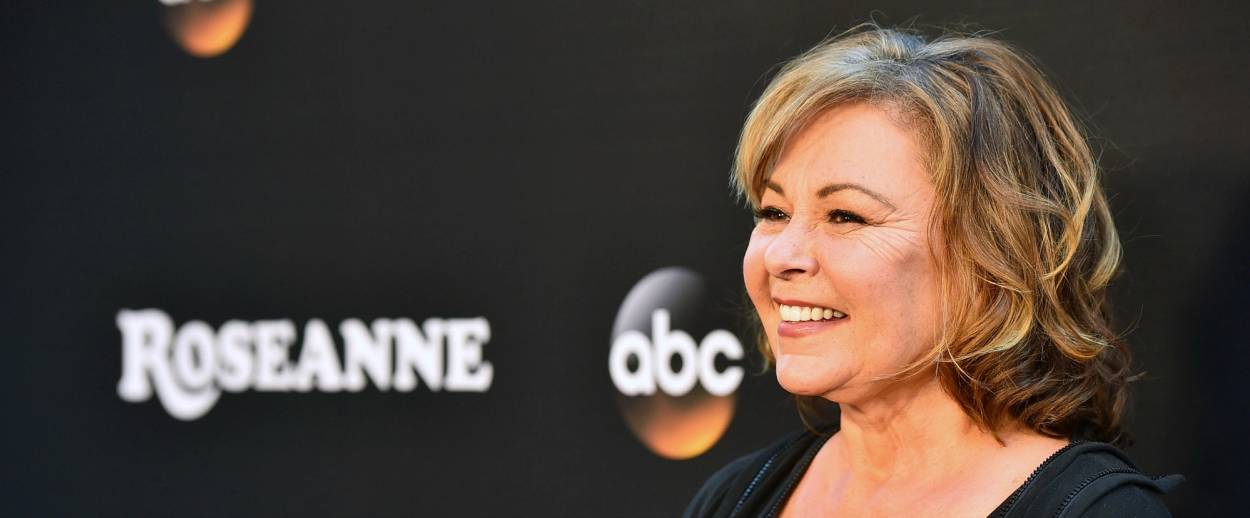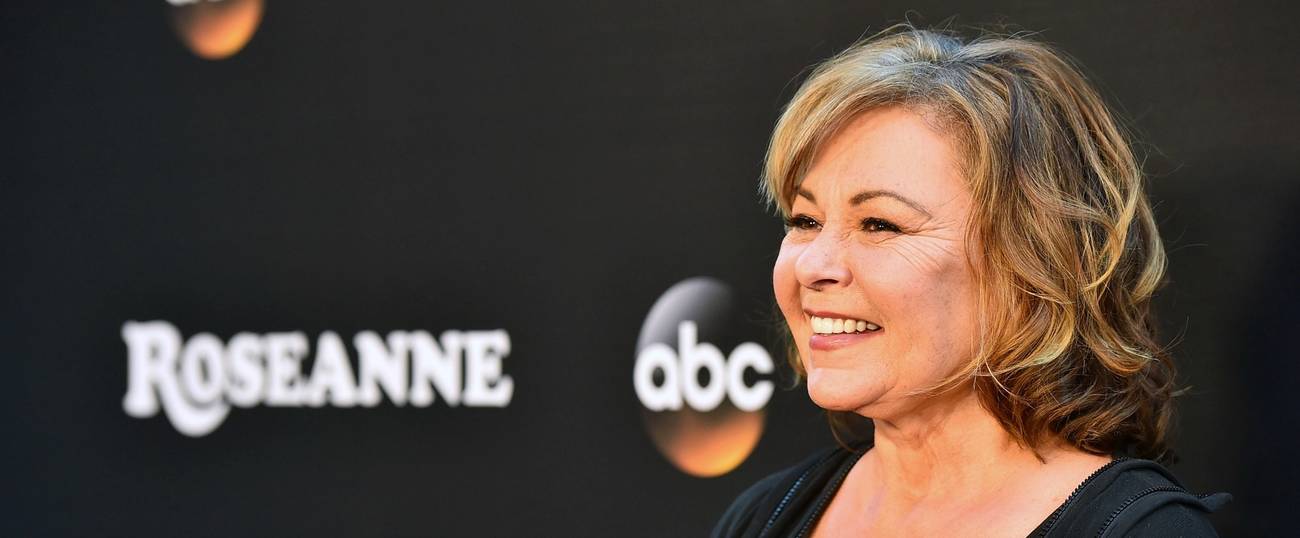Why Trump Should Be Thanking Roseanne Bigly
The comedian’s ratings triumph is yet another reminder that most Americans will reward anyone who merely takes the time and the trouble to acknowledge they exist




This week, 18.3 million Americans tuned in to network television to watch the reboot of Roseanne. To put those numbers in perspective, it may help to know that more people watched the new Roseanne than watched the final episode of the original show more than twenty years ago, in 1997, when people still watched television, back before social media or widespread use of the Internet.
Those numbers are huge. In our era, meaning the past decade, or even decade and a half, they are unprecedented. What matters more is that an audience that size is literally the only thing that could catch the attention of the top decision-makers in the culture industry. Those numbers represent the potential size of the threat to the bottom line of their business, if they choose to ignore them—and the size of the potential profits if they meet them head on, in a way that the audience judges to be at least half-way fair.
It’s hardly a secret that Hollywood was shocked and disgusted by the election of Donald Trump. I felt very much the same way myself. But watch virtually anything on TV and in the multiplex these days, and you realize that the election spurred Hollywood’s power brokers into making a very risky bet, producing content almost exclusively for people who thought and felt and believed the same exact things as them. It’s always been a liberal-leaning industry, but you needed to glimpse only a few minutes of this year’s Academy Awards to understand that ideological purity was now paramount to artistic merit.
Roseanne’s astonishing success should serve as a much-needed wake-up call. What it means is that there is a large audience of Americans who are sick of sneering, condescending, authoritarian right-think that pounds away at the thought-crimes of people who work their asses off and send their kids off to wars while falling further and further behind on their car and mortgage payments. Trump won’t help them, but neither will the intersectional left. And the president, at least, doesn’t demonize their life choices and, on occasion, says something that makes them feel good. To the extent that politics is the downstream of culture, Trump, like Roseanne, understands America in a way that Hollywood no longer does.
One of Hollywood ‘s dirty little secrets is that few people are actually Sean Penn-type progressives crusading for social justice, as both the right and the progressive left would have it. They’re conservative, at least when it comes to making money. The goal of their business being to make as much money as possible, while keeping risk as low as possible. You know, business. Their job isn’t to be censors; it’s to sell people stuff without mortally offending or harming them, which is bad for the brand. They’re audience-pleasers, not wanna-be petty dictators.
HBO may be seen by the right as irredeemably liberal, because they sponsor Tommy Vietor’s podcast and aired Girls—but that’s all cheap window dressing. Literally. The real money at HBO is made by Game of Thrones, whose cost per episode is roughly equal to an entire season of Lena Dunham’s exercise in virtue-signaling and navel-gazing. In Hollywood-think, Game of Thrones, with its nudity and its violence and its brutal depiction of war, is “the conservative show.” And they’re right.
So what to do, if you’re a big executive in Hollywood, mindful of the fact that the talent and half your audience hates Trump, while the other side finds some legitimacy in his animosity, or maybe even in some of his policies? You could put programming on the air that, if not sympathetic to the president, at least appeared sympathetic to the concerns of his audience, which is also your audience, or a big chunk of it. But do that, and you’re sure to be labeled a racist, a fascist, a misogynist, or any of the other noxious labels thrown around so frequently and so casually these days and used to stifle any real attempt at debate. In the #Resistance, there’s little room for contemplation or complexity.
Because young people have always been the heart of the entertainment market, and because so many of the young and the hip cats who tweet and snap and engage in all the other modern forms of hieroglyphics that have replaced more nuanced and intimate discussion seem to despise the president, Hollywood executives needed proof of the upside for implying that Trump, or his supporters, in whatever dimension, were not simply demons. Trump promptly denied them that upside by appearing rash, chaotic, disorganized, unsettling, and ineffective, lurching from crisis to crisis and appearing to set the house on fire through sheer incompetence.
Now, Roseanne has proven the upside, which gives the high sign to anyone in Hollywood who wants to make money. There are also a smaller number of people in these highly partisan times, even in Hollywood, who simply want America to succeed, no matter who the President is, because that’s good for business, firstly, and also because the country’s success furthers the American experiment, which is bigger than any party or any politician. Now, they can finally get a hearing, and maybe even get some shows on the air.
“But Roseanne” is the first decent argument that Donald Trump has had in the culture business since he got elected. It’s even more powerful coming from a comedian like Roseanne who, bless her soul, may be the single most important feminist symbol in America, relevant because she belongs not to the moneyed and privileged chattering vanguards but to the working class. Roseanne herself knows Trump, and appears to personally dislike him. But she’s given him this arguably undeserved gift because she also agrees with him on several key issues, like trade and political correctness. She also understands that Trump plugs in to the frustrations of millions of Americans who’ve been getting shafted for nearly three decades now with neither Democrats nor traditional Republicans doing much to help them out.
Almost for certain, the success of the new season of Roseanne will lead many bien pensants to call the comedian a crackpot or worse. But Roseanne needed just one night to remind us of why she’s the single most popular television star in America, or maybe the most popular woman in America. Good luck to those who will now try to turn a legitimate working class white feminist hero into Putin’s handmaiden, or a racist crank. Roseanne’s success sends yet another reminder, as if the travesty of last November wasn’t enough, that most Americans will reward anyone who merely takes the time and the trouble to acknowledge that they exist.
Liel Leibovitz is editor-at-large for Tablet Magazine and a host of its weekly culture podcast Unorthodox and daily Talmud podcast Take One. He is the editor of Zionism: The Tablet Guide.